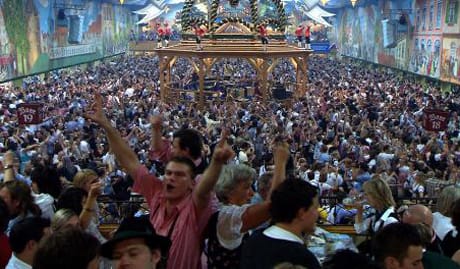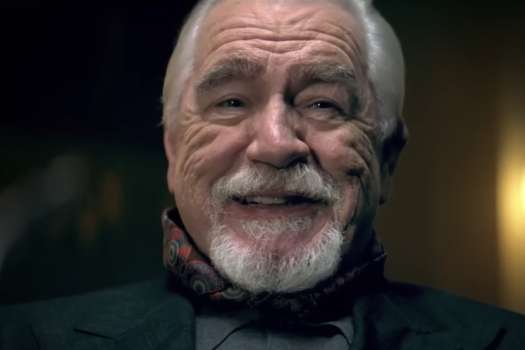Similar to his 2005 documentary, Our Daily Bread, Nikolaus Geyrhalter's often circumspect and deliberately framed follow up, Abendland, has a template of passive observation and juxtaposition to reveal a bigger message, revealing the cold assembly line of the modern world by showing various images and activity throughout Europe after dark.
It doesn't have a "story," per se, instead being a series of vignettes included with the intent to create an overall emotion and comment on the state of society. We, as the audience, are expected to put two-and-two together ourselves.
Starting in a hospital, where a premature baby is attached to tubes and machines, manipulated and touched only for the purpose of function, we move through crowded festivals, factories, mailrooms and CCTV operations, showing people expressionlessly working to maintain order and ensure economic consistency.
Sporadically, sequences shift to the care of people, moving from premature babies to drunk folks in hospitals to adult webcam performers to senior care facilities and, finally, to a crematorium, suggesting that life itself is merely a pre-ordained and packaged process devoid of passion. It all stems from mass mechanization and rigid structures, which, oddly enough, are exacerbated in moments of crowd interaction, wherein police remove protesters from a site and blank-faced teens blend into each other at an expansive rave.
Because Geyrhalter has such a melodic sense of pacing and kaleidoscopic composition, this narrative-free film works as a uniquely powerful visual poem that challenges us to question the rarely considered quotidian as something compounding on a larger scale than its unique parts.
Sure, some of the assertions and individual segments might contradict the overall tone of human folly, seeing as order is an unfortunate necessity in a social context. But, on the whole, the mathematical fluidity and visual essay tapestry are as magnetic and thought provoking as intended, succeeding as a social statement and sharp criticism of a cold way of life.
(NGF)It doesn't have a "story," per se, instead being a series of vignettes included with the intent to create an overall emotion and comment on the state of society. We, as the audience, are expected to put two-and-two together ourselves.
Starting in a hospital, where a premature baby is attached to tubes and machines, manipulated and touched only for the purpose of function, we move through crowded festivals, factories, mailrooms and CCTV operations, showing people expressionlessly working to maintain order and ensure economic consistency.
Sporadically, sequences shift to the care of people, moving from premature babies to drunk folks in hospitals to adult webcam performers to senior care facilities and, finally, to a crematorium, suggesting that life itself is merely a pre-ordained and packaged process devoid of passion. It all stems from mass mechanization and rigid structures, which, oddly enough, are exacerbated in moments of crowd interaction, wherein police remove protesters from a site and blank-faced teens blend into each other at an expansive rave.
Because Geyrhalter has such a melodic sense of pacing and kaleidoscopic composition, this narrative-free film works as a uniquely powerful visual poem that challenges us to question the rarely considered quotidian as something compounding on a larger scale than its unique parts.
Sure, some of the assertions and individual segments might contradict the overall tone of human folly, seeing as order is an unfortunate necessity in a social context. But, on the whole, the mathematical fluidity and visual essay tapestry are as magnetic and thought provoking as intended, succeeding as a social statement and sharp criticism of a cold way of life.




